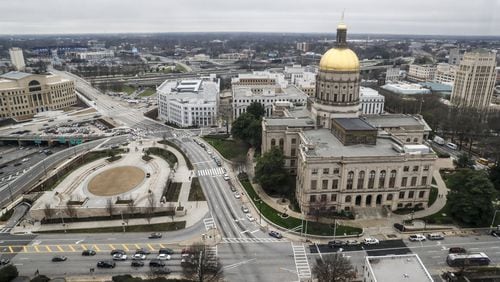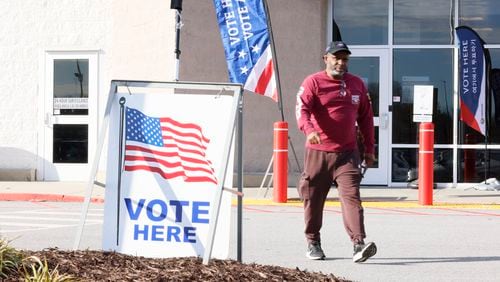Georgia legislators approved redistricting guidelines Monday that are nearly identical to those passed 10 years ago despite calls from the public for greater transparency.
The guidelines set basic ground rules for each district to have similar populations based on recently released census numbers when the General Assembly this fall creates new maps for Congress, the state House and the state Senate.
But the process will be run by Georgia’s Republican majority, which will be able to vote on maps that give them a political advantage in next year’s elections. Typically during redistricting, the majority party moves district lines in ways that help it retain control, while the minority tries to hold onto the seats it has.
Democrats did the same the last time they controlled the process in 2001.
All Republican redistricting committee members supported the guidelines on Monday, while Democratic lawmakers either opposed the rules or abstained.
Maps will be drawn in secret, made public when they’re submitted to redistricting committees, according to the guidelines. A decade ago, legislators unveiled state district maps the Friday before a special session, and congressional maps were revealed two weeks later, midway through the session.
While the guidelines say legislators should consider boundaries of counties and communities, they will have no obligation to create maps that keep areas unified. Redistricting can result in cities being divided as a method for the majority party to gain an edge in elections.
“Fairness, like beauty, is in the eye of the beholder, and that’s where we’re ending up,” said state Rep. Darlene Taylor, a Republican from Thomasville. “This is going to be a tough decision for all of us.”
Senate Minority Leader Gloria Butler said senators should have had a chance to suggest changes before the guidelines were finalized.
“That was also the first time we’d seen that document,” the Stone Mountain Democrat said. “It was not sent to the committee members — at least not to me (or other Democrats). I was not about to vote for something that I hadn’t read, and I still don’t know if there can be changes or additions made later.”
Legislators held 11 public hearings across the state this summer before deciding on the same redistricting process as last time.
“Georgians have a right to know how and why these decisions are being made,” said Susannah Scott, president of the League of Women Voters of Georgia. “We have the right to see proposed maps and be given sufficient time to provide input before the maps are written into law.”
The guidelines also say legislators should avoid pairing incumbent legislators in the same district, and committee meetings will be announced to the public at least 24 hours in advance.
Gov. Brian Kemp hasn’t said when he will call legislators to the Capitol for a special redistricting session.
House Redistricting Chairwoman Bonnie Rich, a Republican from Suwanee, said the session could occur during the first three weeks in November.









